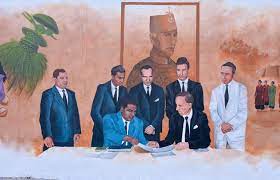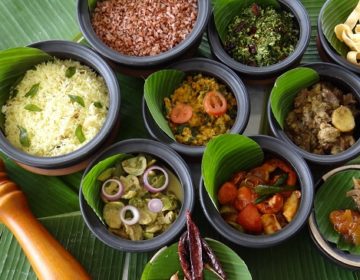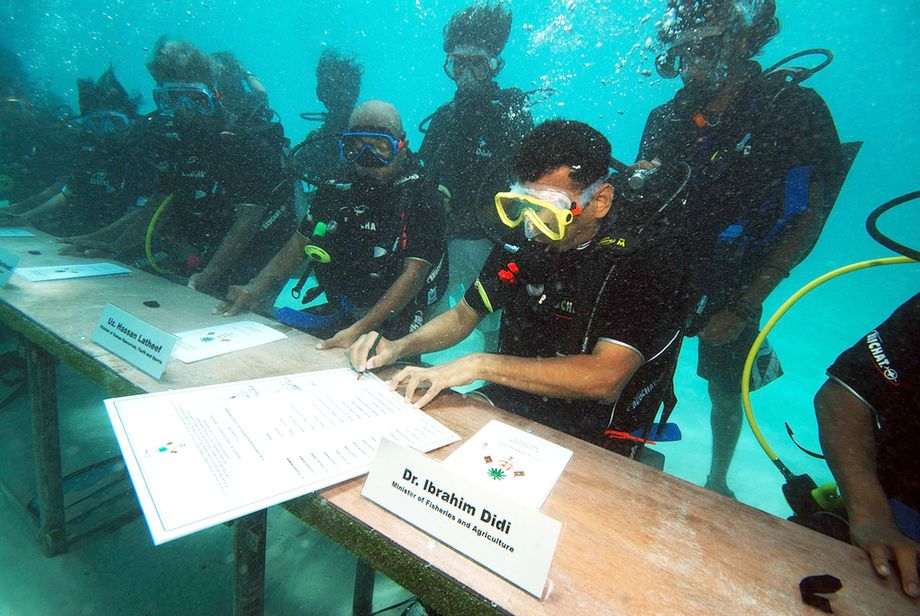
Beneath the postcard-perfect beaches and aquamarine waters of the Maldives lies a rich tapestry of history and cultural heritage. Beyond its reputation as a luxury tourist destination, the Maldives boasts a storied past that has shaped its identity. In this article, we embark on a journey through time to unveil the hidden gems of the Maldives’ history, architecture, traditions, and the resilience of its people.
From Ancient Kingdoms to Modern Nationhood
The history of the Maldives is woven with the threads of ancient kingdoms, colonial influence, and the evolution into a modern nation. As early as the 3rd century BC, the Maldives was a vital trading hub, attracting merchants from Arabia, India, and Southeast Asia. The islands were ruled by various dynasties, each leaving its mark on the cultural fabric of the nation.
In 1887, the Maldives became a British protectorate, ending a history of independent rule. It wasn’t until 1965 that the Maldives gained full sovereignty. This trajectory of foreign influence and eventual self-governance has sculpted the Maldives’ contemporary identity.

Historic Architecture: Coral Stone and Royal Tombs
The Maldives’ architecture reflects its unique history and cultural influences. Coral stone, an abundant resource, has played a significant role in constructing buildings and monuments throughout the centuries. The Maldives’ historic mosques and royal tombs are prime examples of coral stone craftsmanship.
Hukuru Miskiy (Friday Mosque) in Malé, dating back to the 17th century, is a UNESCO World Heritage Site and a masterpiece of Maldivian architecture. Its intricately carved coral stone walls and wooden fretwork reflect the influence of Islamic design intertwined with local craftsmanship.

Traditional Maldivian Craftsmanship: Thundu Kunaa and Dhoni Building
Thundu Kunaa, the art of weaving coconut palm fronds into intricate mats, is a traditional craft that exemplifies the resourcefulness and creativity of Maldivian artisans. These mats are not only functional but also deeply rooted in cultural practices, used in ceremonies, gatherings, and everyday life.
Dhoni building is another integral facet of Maldivian craftsmanship. Dhonis are traditional wooden boats used for fishing, transportation, and travel between the islands. The art of dhoni construction has been passed down through generations, and these vessels stand as a testament to the Maldives’ maritime heritage.

Cultural Festivals: Celebrating Traditions and Unity
The Maldives’ cultural calendar is filled with vibrant festivals that celebrate the nation’s traditions, religion, and unity. Eid al-Fitr and Eid al-Adha, marking the end of Ramadan and the feast of sacrifice, respectively, are significant occasions observed by the predominantly Muslim population. These festivals are celebrated with prayers, feasting, and communal gatherings.
The Maldives’ National Day on November 11 commemorates the end of British rule and the country’s transition to full independence. Festivities include parades, performances, and displays of national pride that showcase the Maldivian spirit.
Dhivehi: Language and Oral Traditions
The Maldivian language, Dhivehi, is the cornerstone of the nation’s identity and cultural heritage. Dhivehi is a unique Indo-Aryan language influenced by Arabic, Sinhala, and other languages due to centuries of trade and cultural interactions.
Oral traditions have been instrumental in preserving the Maldives’ history and folklore. Boduberu, a traditional form of drumming and dancing, is a means of storytelling that recounts the nation’s history, legends, and everyday life. These cultural expressions serve as a bridge between generations, ensuring that the past is passed down and celebrated.

Culinary Traditions: Flavors of the Maldives
The Maldives’ culinary traditions reflect its maritime heritage and geographical location. Seafood is a staple, with fish and coconut forming the base of many dishes. “Garudhiya,” a fragrant fish broth, and “Mas Huni,” a mixture of tuna, coconut, and spices, are iconic dishes that showcase the simplicity and richness of Maldivian flavors.
Influences from India, Sri Lanka, and the Arab world are evident in the use of spices and the preparation of curries. Visitors to the Maldives can savor the local cuisine, sampling dishes that reflect the country’s diverse cultural influences.

Challenges and Resilience: Navigating Modern Realities
The Maldives’ journey through history has been punctuated by challenges, from colonial rule to environmental threats. Rising sea levels due to climate change pose a significant risk to the low-lying islands, underscoring the nation’s vulnerability. In response, the Maldives has emerged as a global advocate for climate action, highlighting the urgent need for sustainable practices and international cooperation.
Despite these challenges, the Maldives’ people have displayed remarkable resilience. Through adaptation, innovation, and preservation of cultural heritage, the nation continues to thrive and evolve.

Cultural Tourism: Embracing Authentic Experiences
Cultural tourism has become an essential aspect of the Maldives’ sustainable development. By engaging with visitors through cultural experiences, the Maldives is not only preserving its heritage but also creating economic opportunities for local communities.
From traditional music and dance performances to guided tours of historic sites
, cultural tourism invites visitors to delve deeper into the Maldives’ cultural tapestry and connect with the heart of the nation.
A Tapestry of Timeless Stories
Beneath the allure of luxury resorts and pristine beaches, the Maldives’ history and cultural heritage unfold like a tapestry of timeless stories. From the echoes of ancient kingdoms to the rhythms of traditional music and the craftsmanship of coral stone, the Maldives’ past is an integral part of its present identity.
As travelers explore the Maldives, they have the opportunity to uncover these hidden gems, to connect with the resilient spirit of the Maldivian people, and to appreciate the cultural nuances that enrich the nation’s vibrant tapestry. By embracing the past, the Maldives is shaping its future, standing as a testament to the enduring power of heritage and the promise of a shared cultural legacy.
Tags:
- Ancient Civilization
- Archipelago History
- Cultural Heritage
- Cultural Legacy
- Cultural Preservation
- Cultural Treasures
- Heritage Sites
- Historical Discoveries
- Historical Exploration
- Historical Landmarks
- Indigenous Culture
- Island Archaeology
- Island Artifacts
- Island History
- Island Traditions
- Maldives Heritage
- Maldives Heritage Sites
- Maldives History
- Maldivian Culture
- Traditional Practices
